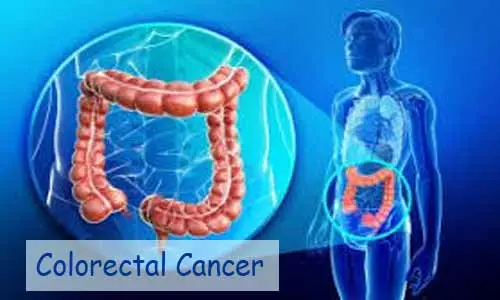- Home
- Medical news & Guidelines
- Anesthesiology
- Cardiology and CTVS
- Critical Care
- Dentistry
- Dermatology
- Diabetes and Endocrinology
- ENT
- Gastroenterology
- Medicine
- Nephrology
- Neurology
- Obstretics-Gynaecology
- Oncology
- Ophthalmology
- Orthopaedics
- Pediatrics-Neonatology
- Psychiatry
- Pulmonology
- Radiology
- Surgery
- Urology
- Laboratory Medicine
- Diet
- Nursing
- Paramedical
- Physiotherapy
- Health news
- Fact Check
- Bone Health Fact Check
- Brain Health Fact Check
- Cancer Related Fact Check
- Child Care Fact Check
- Dental and oral health fact check
- Diabetes and metabolic health fact check
- Diet and Nutrition Fact Check
- Eye and ENT Care Fact Check
- Fitness fact check
- Gut health fact check
- Heart health fact check
- Kidney health fact check
- Medical education fact check
- Men's health fact check
- Respiratory fact check
- Skin and hair care fact check
- Vaccine and Immunization fact check
- Women's health fact check
- AYUSH
- State News
- Andaman and Nicobar Islands
- Andhra Pradesh
- Arunachal Pradesh
- Assam
- Bihar
- Chandigarh
- Chattisgarh
- Dadra and Nagar Haveli
- Daman and Diu
- Delhi
- Goa
- Gujarat
- Haryana
- Himachal Pradesh
- Jammu & Kashmir
- Jharkhand
- Karnataka
- Kerala
- Ladakh
- Lakshadweep
- Madhya Pradesh
- Maharashtra
- Manipur
- Meghalaya
- Mizoram
- Nagaland
- Odisha
- Puducherry
- Punjab
- Rajasthan
- Sikkim
- Tamil Nadu
- Telangana
- Tripura
- Uttar Pradesh
- Uttrakhand
- West Bengal
- Medical Education
- Industry
Colorectal cancer screenings should start at age 45, says new UPSTF guideline

USA: The US Preventive Services Task Force (USPSTF) has released an updated version of recommendation on screening for colorectal cancer.
The guideline changes, published in the current issue of JAMA, updates its 2016 recommendations and aligns them with those of the American Cancer Society, which lowered the age for initiation of screening to 45 years in 2018.
According to the recommendations, colorectal cancer screenings should begin for adults at age 45, instead of the previous standard of screenings beginning at age 50. Also, clinicians should selectively offer to screen to adults 76 to 85 years of age.
Colorectal cancer is the third leading cause of cancer death for both men and women, with an estimated 52 980 persons in the US projected to die of colorectal cancer in 2021. Colorectal cancer is most frequently diagnosed among persons aged 65 to 74 years.
To update the 2016 recommendation, the task force commissioned a systematic review to evaluate the benefits and harms of screening for colorectal cancer in adults 40 years or older. The review also examined whether these findings varied by age, sex, or race/ethnicity.
Key recommendations include:
- The USPSTF recommends screening for colorectal cancer in all adults aged 50 to 75 years.
- The USPSTF recommends screening for colorectal cancer in adults aged 45 to 49 years.
- The USPSTF recommends that clinicians selectively offer screening for colorectal cancer in adults aged 76 to 85 years. Evidence indicates that the net benefit of screening all persons in this age group is small. In determining whether this service is appropriate in individual cases, patients and clinicians should consider the patient's overall health, prior screening history, and preferences.
"The USPSTF concludes with high certainty that screening for colorectal cancer in adults aged 50 to 75 years has substantial net benefit. The USPSTF concludes with moderate certainty that screening for colorectal cancer in adults aged 45 to 49 years has moderate net benefit. The USPSTF concludes with moderate certainty that screening for colorectal cancer in adults aged 76 to 85 years who have been previously screened has small net benefit. Adults who have never been screened for colorectal cancer are more likely to benefit," wrote the authors.
Reference:
"Screening for Colorectal Cancer US Preventive Services Task Force Recommendation Statement," is published in the Journal of the American Medical Association.
DOI: https://jamanetwork.com/journals/jama/fullarticle/2779985
Dr Kamal Kant Kohli-MBBS, DTCD- a chest specialist with more than 30 years of practice and a flair for writing clinical articles, Dr Kamal Kant Kohli joined Medical Dialogues as a Chief Editor of Medical News. Besides writing articles, as an editor, he proofreads and verifies all the medical content published on Medical Dialogues including those coming from journals, studies,medical conferences,guidelines etc. Email: drkohli@medicaldialogues.in. Contact no. 011-43720751


